No products in the cart.
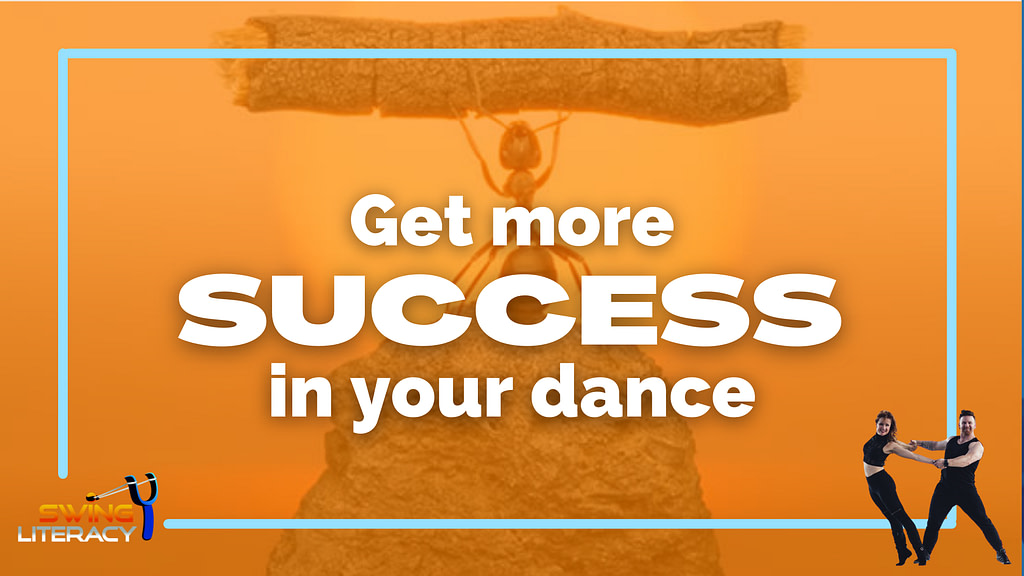
Get more success in your dance
Reading Time: minutes remaining
Are you winning yet?
“Winning” is not only about the final placement. You don’t even have to be competitive to be “winning”. In our WCS competition scene, while many dancers ambitiously chase points, others are kicking their butts in other aspects – winning games that have no trophies or prize money, but are invaluable nonetheless.
The word “winning” has taken on a new colloquial meaning in recent years. Thanks to Charlie Sheen, it now can be used to refer to any success – any achievement or gain in a desired area of game play. Let me define what I mean by “play”: any endeavour, project, or goal you take on, no matter how small, can be considered a game, and you are the player.
If you achieve your aim, or gain/earn a benefit, you win.
Here’s an example:
“Asked favourite pro to dance, they asked me for a second song! Winning!”
The most obvious game in the WCS world is dance contests, so I'll talk about that first, but even if you don't compete, keep reading...
Regardless of the format, the rewards include money, trophies, status (points), and admiration. But there are other games being played concurrently within the contests, that each have different rewards that have nothing to do with placements:
- Getting genuine great feedback from your partners. Win!
- Having peers compliment you on your outfit. Win!
- Nailing that move you’ve been working on. Win!
- Getting a huge cheer for that perfect musical hit. Win!
- Feeling “in sync” with all your partners. Win!
- Saving a move that almost tragically failed. Win!
- Impressing peers and judges who had underestimated you. Win!
- Earning a smile from an otherwise stoic partner. Win!
- Elevating a “weaker” partner to dance higher than their own level. Win!
- Creating a permanent memory of a new “best dance ever” benchmark. Win!
- Making your partner’s day/month/year. Win!
- Having loads of people tell you they “had you in 1st”. Win!
- Being “in the Zone”. Win!
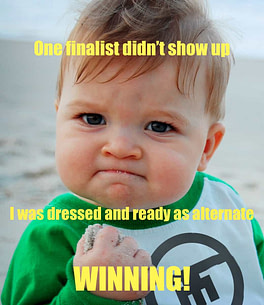
Some routine-specific wins:
- Not falling. Win!
- Making people react emotionally to your art. Win!
- “Owning” the choreo, instead of just executing it. Win!
- Finding just the right movement to fit all the criteria. Win!
- Inventing a new trick/element never done before. Win!
- Getting that music cut juuuust right. Win!
- Feeling amazing in your new costume. Win!
- Accolades from judges and peers. Win!
Some social-dance-specific wins:
- Winning a “Social Dancer of the Event” award. Win!
- Being the most popular partner for all the beginners. Win!
- Being asked to dance Strictly Swing by a wide range of partners. Win!
- Getting more partners asking you to dance. Win!
- Being asked to dance twice in a row by someone you admire. Win!
- Getting a compliment from your partner. Win!
- Asking someone intimidating to dance. Win!
Whether you had intended to achieve these goals or not, they result in a positive gain that feels equally as valuable, if not more valuable than your placement. More valuable, because there was a more direct cause and effect relationship between your effort and the reward. You can take direct credit for the win, as opposed to a contest, where relative placement tends to dilute the credit.
These games are also more winnable than judges’ scores in a dance contest, not only because there are multiple judges and each one has their own criteria to grade you against, but also because the goals are under your control. In a dance contest, you have control over your dance and some of your partner’s dance. But...
you have zero control over how well other couples dance.
So to set a goal of “winning 1st place” is futile, because you can’t control the variables. You could set a dream for this, sure. But not a goal. And then you self-sabotage with "comparanoia": paranoia and obsession with comparing yourself to others' wins.
Where people get stuck is trying to set goals for themselves that are out of their control, then being disappointed when they fail to achieve them. If you measure your success and base your self-esteem on whether or not you took first place, you are setting yourself up to be disappointed by external circumstances and sheer statistics.
Focus on setting goals around things you can control that have nothing to do with comparing yourself to others.
Let's talk about Failing
Let's release the emotion behind the word "fail".
A “fail” is simply a missed trial. An unsuccessful attempt. Like going for a one-footed spin and having to bail after only 2 rotations. Or, you meant to lower her hand before twisting it, but you forgot. Like wins, fails can be minuscule, or epic. The colloquial superfluous phrase, “epic fail” refers to a gross misdemeanour or embarrassing social or physical slip up.
But let’s recognize that not all fails are epic. Sometimes that little missed attempt is empty and meaningless.
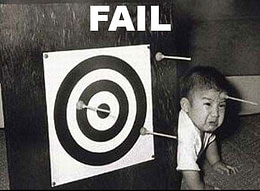
Just because you failed to catch the hand/hit the break/wear black socks/remember someone’s name, it doesn’t ruin the whole experience. If you stack several fails back to back, it might cause an impact, but...
any one failure in isolation is usually not a big deal.
This is especially important to remember when you are with your practice partner: be careful not to criticize missed attempts. “A big success is made of a bunch of little failures scrunched together”: It takes target practice to gradually work towards perfecting something. “Fails” do not make you a “failure”. This is a very important distinction.
What really matters is how you react to a fail, especially in public. Champions make mistakes all the time on the comp floor, but what sets them apart from lower level dancers is their ability to recover and turn lemons into lemonade.
Fails could be seen as “happy accidents” that lead to another unexpected brilliant idea. Spectators and judges value pushing through adversity, so they reward dancers who can turn a fail around into a win. Losing your cool over a fail of any size is an epic fail.
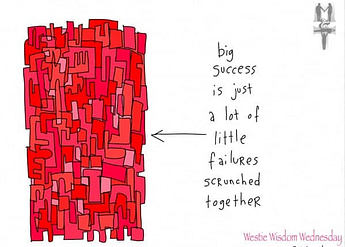
Social Winning vs Competitive Winning
Not all games are about the physical aspect of the dance. Since social dancing is a social activity, there is a social game to be played. Dancers should be learning these affective & social skills throughout their early training, kinda like learning the rules of the game in order to play it.
Unfortunately, many are forced to learn the hard way, out in the wild. The social community can be a tough panel of judges. Social fails are taken more seriously than dance fails. Fails will happen, as they do in life, but what is important is how you recover. Poor recovery is a slippery slope that can lead to ostracism and outcasting.
It’s possible to be winning your dance game while failing the social game. This can happen at any level: when you spend too much time focusing on your dance goals and not fostering the human side of this sport.
At the end of the day, it doesn’t matter how good of a speaker you are if nobody wants to listen to you.
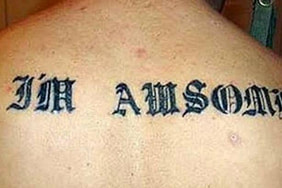
You have to ask yourself, which do you care more about, the points or the hugs?
Another way to put it in perspective, would you enjoy WCS as much if you won everything but everyone despised you?
Just because you are doing well competitively, doesn’t mean you are on the right track. You need to listen to social feedback, not just scoring feedback.
Some Social Fails
- Trying to “coach” your partners during class or social dances. Fail!
- Insulting or criticizing your partner for not doing a move as expected. Fail!
- Thinking the only way you can improve is by dancing with higher level dancers, thus refusing to dance with newbies because you are afraid they will “ruin” your progress. Fail!

- Huddling in a corner with your friends at a social dance and only dancing with each other. Fail!
- Voicing your opinions about awards/scores loudly in public. Fail!
- Refusing a dance then turning around and dancing with someone else. Fail!
- Only being friendly to certain people. Fail!
- Blatantly sucking up to pros but ignoring common dancers. Fail!
- Forgetting to invite (insert valued friend) to your room party/group dinner/latenight breakfast. Fail!
- Allowing your face to show disdain/boredom for your partner during your social dance. Fail!
- Bragging or shoving your success in other’s faces. Fail!
- Gossiping about other dancers to make yourself look better in contrast. Fail!
- Sending an aggressive or passive aggressive message on social media. Fail!
- Bullying, threatening, backstabbing, general immature high school behaviour. Epic Fail!***
- Getting physically aggressive with anyone – Epic Fail!***
- Inappropriate touching during dances, or inappropriate conduct with minors – Epic Fail!***
***could lead to legal action
Remember, (except for the ***) it’s not one fail that ruins you – it’s a consistent pattern, or an accumulation of multiple fails that discolours your social reputation. It’s never too late to apologize and reform your habits.
Creating a game for yourself
Since placements and cash are beyond your control, it’s a better idea to create a game for yourself that improves the dancing experience for you and fixes your fails – a game you CAN win. Let’s get creative….
What do you get out of social dancing? What are your favourite moments that fill your bucket? Think about what motivates you to dance/practice/compete more. Make a game for yourself of hunting down and collecting those moments.
What fails do you despise observing in others? Make yourself a game of never falling into this trap and being sure to always choose a better path.
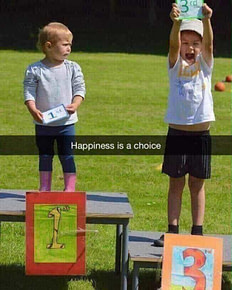
What limitations do you feel you have in your dance? Make a game out of finding ways around them and surprise yourself with how much you CAN accomplish despite them.
Are you bored? Make up a new challenge for yourself. No one needs to know your game – you don’t need to advertise. In fact, be careful because your game might offend some people. (Example: Playing a game that involves making the best out of dancing with tragically awkward partners and making them feel like a million bucks.)
As coaches, we help dancers create these games, along with goal setting, assessment, and qualitative progress monitoring: things that scores can’t provide.
Here are a few games I play:
- Asking shy dancers (leaders or followers) to dance and encouraging them to play
- Elevating every social dance partner to dance better than they thought they could
- Hunting for promising up-and-comers based on their connection, not aesthetic
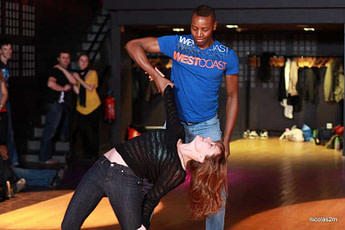
- Treating each "challenging" dancer as a puzzle to decode
- Evoking powerful, visceral emotional responses from the audience during our Showcase routine
- Perfectly executing our choreographic vision, regardless of the placement
Innovating as pioneers – “being the first” is more important to us than “placing first” - Blowing my students’ minds each and every lesson, and leaving them feeling empowered.
So if you are willing to play the game(s) and are playing by the rules, celebrate your wins!
If you experience fails, take responsibility for them, recover gracefully, and move on.
Make up your own games for yourself, but be mindful of our shared games and social agreements.
Be sure to support and celebrate others’ winning as much as your own. In this game, there’s no such thing as “only one winner”.
You must be logged in to post a comment.
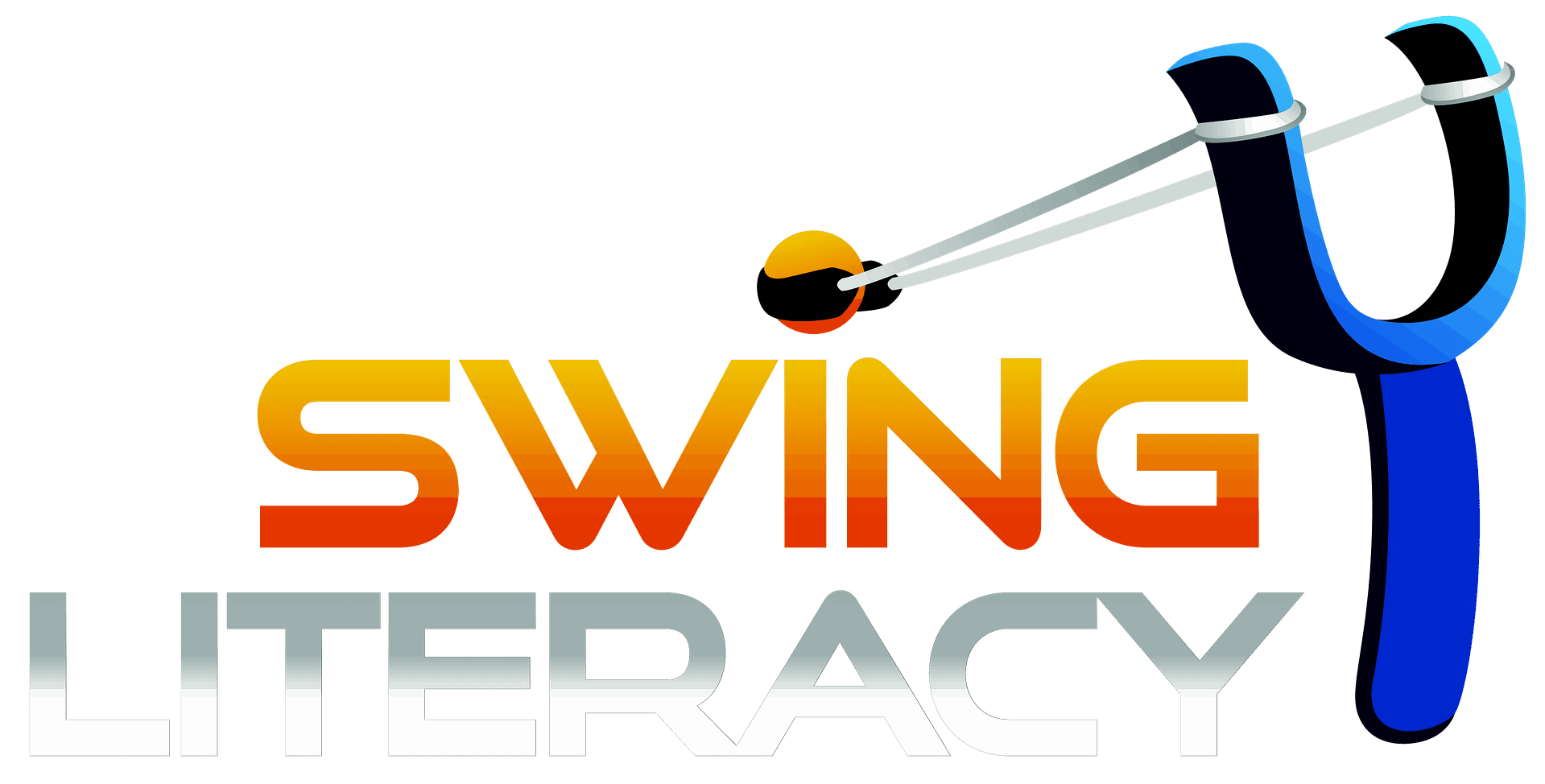
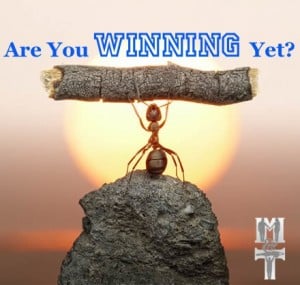
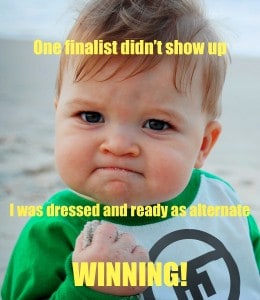
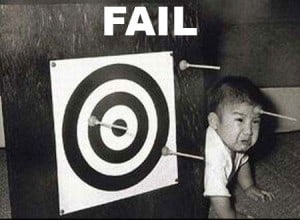
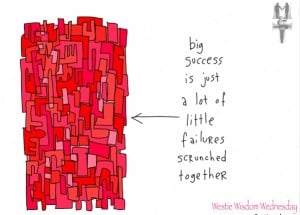 at really matters is how you react to a fail, especially in public. Champions make mistakes all the time on the comp floor, but what sets them apart from lower level dancers is their ability to recover and turn lemons into lemonade. Fails could be seen as “happy accidents” that lead to another unexpected brilliant idea. Spectators and judges value pushing through adversity, so they reward dancers who can turn a fail around into a win. Losing your cool over a fail of any size is an epic fail.
at really matters is how you react to a fail, especially in public. Champions make mistakes all the time on the comp floor, but what sets them apart from lower level dancers is their ability to recover and turn lemons into lemonade. Fails could be seen as “happy accidents” that lead to another unexpected brilliant idea. Spectators and judges value pushing through adversity, so they reward dancers who can turn a fail around into a win. Losing your cool over a fail of any size is an epic fail.
 Remember, (except for the ***) it’s not one fail that ruins you – it’s a consistent pattern, or an accumulation of multiple fails that discolours your social reputation. It’s never too late to apologize and reform your habits.
Remember, (except for the ***) it’s not one fail that ruins you – it’s a consistent pattern, or an accumulation of multiple fails that discolours your social reputation. It’s never too late to apologize and reform your habits.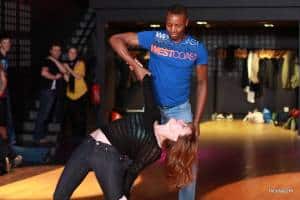
Hi-
Just wanted to thank you for this article. Sometimes it’s good to be reminded what true winning is all about and how it can empower not only yourself but others around you. As well as the negative aspects and how those types of things can happen and what to practice in lieu of that.
I’m grateful for this type of balanced viewpoint and it was very upbuilding to me. I will definitely try and apply some of the suggestions. That’d be my idea of winning- having chances to help build people up and having the result be positive to a community as a whole.
I love this article so much!
Searching a lot of small own Winning!s would help our dance life and probably other people around us as well!
Nailed it
Always love your commentary. You get the important stuff! Hope to take your intensive some day.????
Awesome article! Right on the spot! =)
Absolutely wonderful article
Writing an article that brightens my (and likely many others’) day.
Winning!
Sharing insight that elevates our whole dance community.
Winning!
Reminding me why I love this dance, the dance community and your leadership so much.
Winning!!
So proud to be part of the Canadian west coast swing community and global WCS community.
Winning!
You guys are winning and helping all of us win! Thank you for posting this fantastic article! Hugs!!!
Thanks Tessa. You write with the wisdom of Buddha on this topic. Thanks for the lovely list of practical steps to take to emphasize win-win in our dance community!
GREAT article!!
Dear Tessa,
We loved your article in Hungary! It’s really great! I really like that you talk about new things to explore, finding happiness in it, and that west coast swing is not just only about competion winning. We have a website for our community and we translated your whole article into Hungarian.
Kind regards,
Eva
Asa a social dancer, I love the line "create a game for yourself that improves the dancing experience for you and fixes your fails – a game you CAN win. Let’s get creative"
I love this article. There were many points that I sympathized with. Thank you for giving me courage and wisdom!
embrace dancing with varied partners and different abilities and celebrate where you both are at and strive to elevate their strengths and promise
Definitely, the social game is much more important to me than the competitive game. At some point competing shifted to being a way to circulate and meet new dancers rather than a true measurement of my growth.
Great food for thought! I'm guilty of many of those negative things and will try to improve myself and my awareness in the future — to make it the most fun dance possible for me AND my partner.